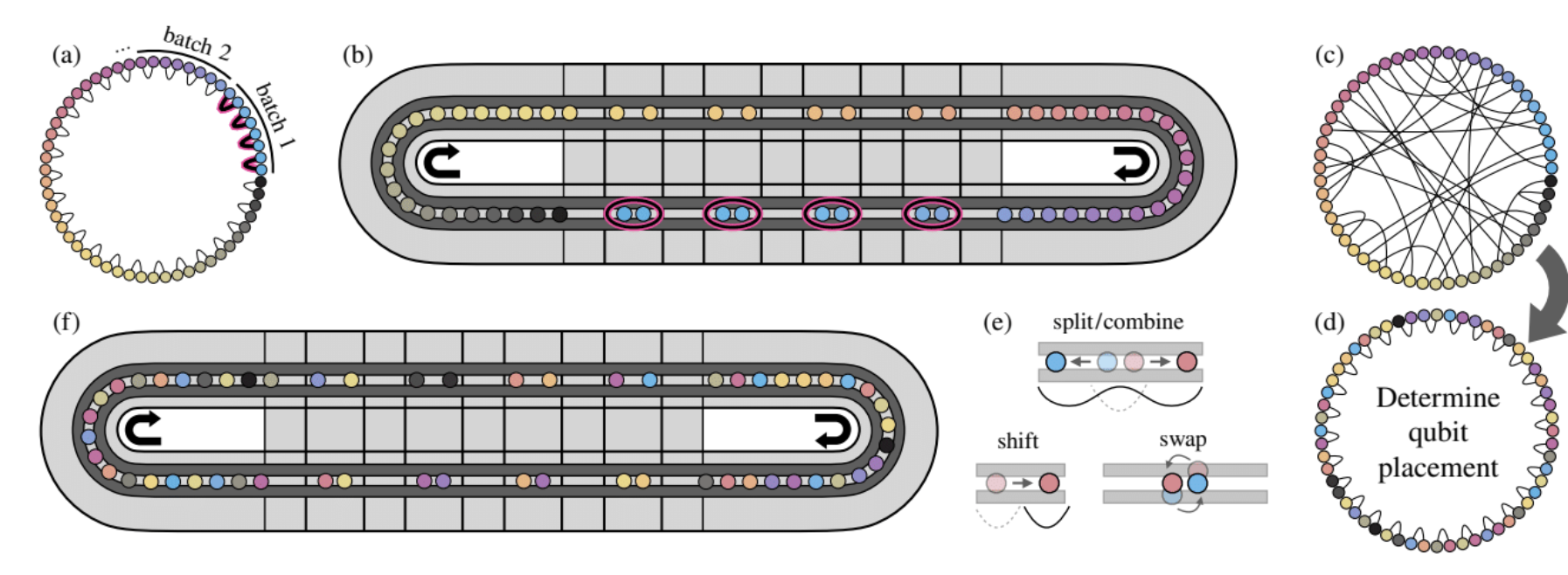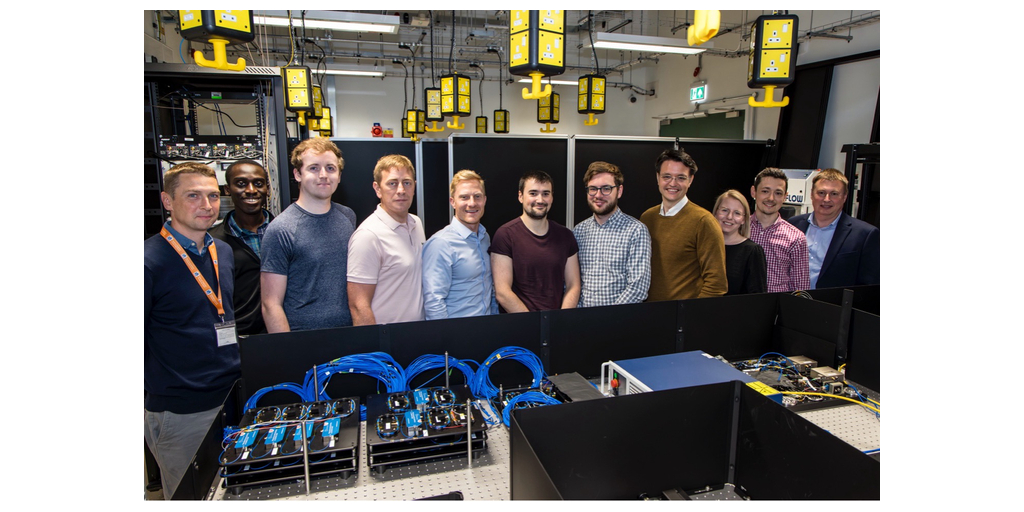Insider Brief
- Quantinuum unveiled its H2-1 quantum computer with 56 trapped-ion qubits that further improves its market-leading fidelity.
- The company, working with JPMorgan Chase researchers, also reported on a new world record for the cross entropy benchmark on the H2-1.
- Critical Quote: “Our focus on qubit quality – trapped ion qubits that solve complex problems with higher fidelity and greater accuracy – versus the quantity of qubits is changing what’s possible, and bringing us closer to the long-awaited commercialization of quantum’s applications across industries like finance, logistics, transportation and chemistry.” — Rajeeb Hazra, CEO of Quantinuum
PRESS RELEASE — Quantinuum, the world’s largest integrated quantum computing company, today unveiled the industry’s first quantum computer with 56 trapped-ion qubits. H2-1 has further enhanced its market-leading fidelity and is now impossible for a classical computer to fully simulate.
A joint team from Quantinuum and JPMorgan Chase ran a Random Circuit Sampling (RCS) algorithm, achieving a remarkable 100x improvement over prior industry results from Google in 2019 and setting a new world record for the cross entropy benchmark. H2-1’s combination of scale and hardware fidelity makes it difficult for today’s most powerful supercomputers and other quantum computing architectures to match this result.
“We’re extending our lead in the race towards fault tolerant quantum computing, accelerating research for customers like JPMorgan Chase in ways that aren’t possible with any other technology,” said Rajeeb Hazra, CEO of Quantinuum. “Our focus on quality of qubits versus quantity of qubits is changing what’s possible, and bringing us closer to the long-awaited commercialization of quantum’s applications across industries like finance, logistics, transportation and chemistry.”
According to Ilyas Khan, founder and Chief Product Officer, Quantinuum, the experiment shows that quantum is moving from the theoretical to the applied and from the scientific to the practical, according to Ilyas Khan, founder and Chief Product Officer, Quantinuum.

Khan said: “When, in late 2019, Google released details of their ‘quantum supremacy’ experiment, Sundar Pichai their CEO published a blog that has withstood the test of time with respect to the importance of the milestone that was then reached. Our work, published today, and done in collaboration with researchers from JP Morgan, Argonne National Labs and Caltech, elevates that bar to one where we clearly now operate in a place that has been anticipated for so long. One where classical supercomputers simply cannot compete and where the computational task is measurable and relevant. I could not be more excited to share this with the quantum eco-system as a whole, with great pride and also with further anticipation as we have disclosure lined up over summer that will continue to extend our lead as we build scalable universal fault tolerant quantum computers.”
Quantinuum’s analysis also indicates that the H2-1 executes RCS at 56 qubits with an estimated 30,000x reduction in power consumption compared to classical supercomputers, reinforcing it as the preferred solution for a wide array of computational challenges.
“The fidelity achieved in our random circuit sampling experiment shows unprecedented system-level performance of the Quantinuum quantum computer. We are excited to leverage this high fidelity to advance the field of quantum algorithms for industrial use cases broadly, and financial use cases in particular,” said Marco Pistoia, Head of Global Technology Applied Research at JPMorgan Chase.
Today’s announcement is the latest in a string of breakthroughs made by Quantinuum in 2024:
- In March, the company revealed a long-sought solution to the “wiring problem,” demonstrating that the quantum charge-coupled device (QCCD) architecture can scale to large qubit numbers.
- Quantinuum’s H-Series became the first to achieve “three 9s” – 99.9% – two-qubit gate fidelity across all qubit pairs in a production device, a critical milestone enabling fault-tolerance.
- Then, in collaboration with Microsoft, Quantinuum ’s H2-1 was declared the first – and so far the only – quantum computer capable of achieving Level 2 Resilient quantum computing, creating four reliable logical qubits using error correction and detection to achieve an 800-fold reduction in error rate.
“Microsoft looks forward to a continued collaboration with Quantinuum as they release their high fidelity 56-qubit machine,” said Dennis Tom, General Manager Microsoft Azure Quantum. “Recently, the teams created four highly reliable logical qubits by applying Azure Quantum’s qubit-virtualization system to Quantinuum’s 32-qubit machine. With the additional physical qubits available on Quantinuum’s new machine, we anticipate creating more logical qubits with even lower error rates. As we reach these milestones, we will continue to increase the resiliency of quantum operations as well as the utility of quantum computing.”
Quantinuum also recently closed a $300 million equity fundraise anchored by JPMorgan Chase with additional participation from Mitsui & Co., Amgen and Honeywell, which remains the company’s majority shareholder, bringing the total capital raised by Quantinuum since inception to approximately $625 million.
To learn more, please visit: https://www.quantinuum.
The scientific paper is available here: The Computational Power of Random Quantum Circuits in Arbitrary Geometries.


















